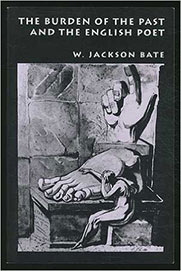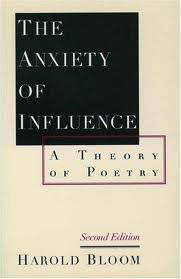Clarion call
“I’m going to begin by telling you I hear voices.” So starts a lecture given in April 1991 at the George Edward Woodberry Poetry Room in Lamont Library, Harvard. It was offered by my old — then still vigorous — teacher, William Alfred (1922-99), and I can quote it now because his voice has been preserved by an admiring cadre of students who produced a memorial CD. Stentorian if scratchily, the poet speaks. His “Keen for Bridget Kelly” includes the phrase, “I am disgusted by the inadequacy of tears, the mourner’s arm-band…” and ends with the resounding, “It is amazing you should come to die. What in Christ’s name is there to say but this?”
Professor Alfred was an iconic figure to those fortunate enough to study with him. I did so as an undergraduate at Harvard in a large lecture course on the history of drama, then a smaller series of courses on the Anglo-Saxon language and versification from which our poetry is in important part derived.He became my informal tutor in “the writers’ trade,” an inspirational figure for me and many other students in the 1960s, as well as the decades beyond. Seamlessly — or so it seemed — he merged a commitment to scholarship with a readiness to act as father-confessor to those of us who sought him out. His infectious love of language, his learning worn lightly, and his self-deprecating humor were, it seemed to us, exemplary: We wanted to know what he knew.
A poet and playwright — most notably for Hogan’s Goat (which, not incidentally, starred a young Faye Dunaway) — Alfred stood with one foot in the academy and one in the professional world. Robert Lowell and Elizabeth Bishop counted themselves his friends. So did the street people of Cambridge, whom he would daily bless. A fervent Catholic, he brought the Greek playwrights and Henrik Ibsen to life, yet was also au courantwith the latest doings on Broadway.
To be invited to Alfred’s house or join him for a campus walk was to feel empowered. To hear him talk of his childhood in Brooklyn or service in the army was to enlarge one’s horizon. His generous spirit, his sweet attentiveness to the plaints and ambitions of students, his selfless dedication to the enterprise of teaching was and is a model for unnumbered acolytes. I count myself among them. I have not heard his living voice for nearly 50 years yet it rings daily in my ears: a clarion call.
A long line of “adepts”
 All this has been occasioned by an email I today received from a student (who shall remain nameless, and in truth I didn’t remember her name) to whom I once was generous in 1972. Her claim — no doubt hyperbolic — is that my encouragement sustained her through nearly 40 years in the pre-publication wilderness, and her first book, soon-to-be-published, owes much to my help way back when. This sort of recognition delights an old professor, but I refer to it because it seems to me emblematic of the teacher-student relationship when successful. We carry — every one of us — some memory of something said in class that made a difference once.
All this has been occasioned by an email I today received from a student (who shall remain nameless, and in truth I didn’t remember her name) to whom I once was generous in 1972. Her claim — no doubt hyperbolic — is that my encouragement sustained her through nearly 40 years in the pre-publication wilderness, and her first book, soon-to-be-published, owes much to my help way back when. This sort of recognition delights an old professor, but I refer to it because it seems to me emblematic of the teacher-student relationship when successful. We carry — every one of us — some memory of something said in class that made a difference once.
William Alfred, were he still alive, would feel just as surprised if not embarrassed by the paen of praise in my first few paragraphs as is his student by his own student’s letter of thanks. To learn or read long after the fact that something you once said or wrote retains enduring currency is to feel singled out. There’s a “strange comfort afforded by the profession” — the title of a short story by Malcolm Lowry, as it happens — and when we acknowledge indebtedness we join a long line of adepts who once received instruction at a master’s feet. Then, in that master’s honor, we try to do the same.
Descent and influence
This sort of retroactive homage seems to me representative. But familiar, too, is the way we dismiss old models — whether they be books we read as children, movies once loved that now make us cringe, or fashions that today can seem passé. The stages of age entail “outgrowing” youthful modes of expression the way we have outgrown old attitudes and clothes.
 Two major critical studies — Walter Jackson Bate’s The Burden of the Past and the English Poet (1970) and Harold Bloom’s The Anxiety of Influence (1973) — describe the nexus, for writers, of a tradition both embraced and thereafter rejected. We all remember something learned in grade school, high school, or college that has stayed with us as instruction. We improve our skills by copying others and then attempt to say (or write, or draw, or dance) something original. It’s the time-honored sequence of apprenticeship: You spend years under someone’s tutelage (present or distant, in the flesh or on the page), then set out on your own.
Two major critical studies — Walter Jackson Bate’s The Burden of the Past and the English Poet (1970) and Harold Bloom’s The Anxiety of Influence (1973) — describe the nexus, for writers, of a tradition both embraced and thereafter rejected. We all remember something learned in grade school, high school, or college that has stayed with us as instruction. We improve our skills by copying others and then attempt to say (or write, or draw, or dance) something original. It’s the time-honored sequence of apprenticeship: You spend years under someone’s tutelage (present or distant, in the flesh or on the page), then set out on your own.
That line of descent and influence can be traced in novels nowadays, recent books that offer up variations on a theme. We gain slow-accruing confidence until we dare again to look at something old. Think of Michael Cunninghams’s The Hours,which is a cap-tip to Virginia Woolf’s Mrs. Dalloway.Or Zadie Smith’s On Beauty,which finds its inspiration in E.M. Forster’s Howards End.Or Jeffrey Eugenides’ The Marriage Plot,derived from the action of Jane Austen’s novels. There’s a way in which all authors are students of what went before, and each of us absorbs the work of admired predecessors.
In this regard, perhaps, there’s “nothing new under the sun,” but that assertion must be wedded to Ezra Pound’s strict injunction: “Make it new.” The paradox inhering in those paired pronouncements is what powers all revivals or interpretations of a text: In order to become the king the prince must also kill him, or so the story goes…
When talking of contemporary poets, William Alfred spoke of “…that terrible failure of confidence which comes when you see something new.” In his “Keen for Bridget Kelly” he memorializes a figure long gone, but she has not “come to die” because the language lives.



Kenneth Caldwell
Great article. I also treasure certain pivotal aspects of my education under the tutelage of former literature professors, and I suspect they didn’t know at the time the impact they were making. Reception and retention of information, memory making—how strange that such defining moments should be so unpredictable!
Harold Bloom’s seminal work is an apt reference to make here: Are there any original ideas left? The film Inception explores this idea in a unique way—influential ideas implanted in dream states give the dreamer a false sense of authorship.
Reply
Peter Grudin - 1970
Dear Nick,
For the past ten years I have been trying to do something to preserve and distribute William Alfred’s memory. I have been working through and with Brooklyn College archives, but there are some real problems and I need help from some of Alfred’s other admirers. I am trying to reach you through Eduardo Gonzalez, and this is a backup attempt to do so. Please get in touch with me at pgrudin@gmail.com. Thanks and best regards.
Reply